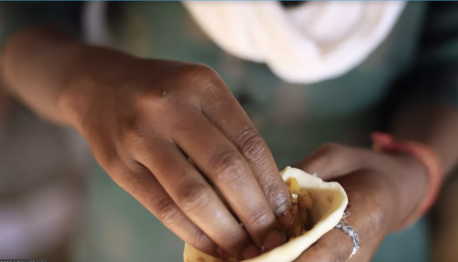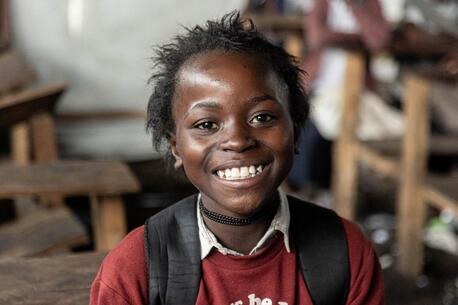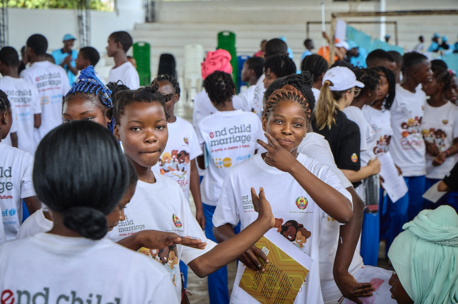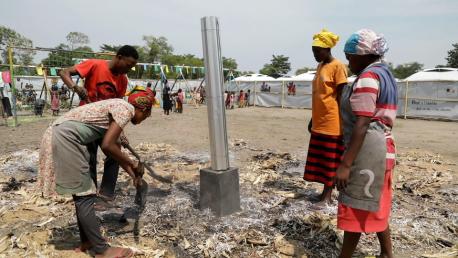
Green Girls Eco-Charcoal Project Takes Off in Burundi
UNICEF Burundi's Green Girls 2.0 eco-charcoal initiative doesn't just prevent deforestation; it also drives equity and local business development.
Not far from Bujumbura, Burundi's largest city, the Maramvya Sobel camp is crowded with more than 6,000 people who were forced out of their homes by a series of catastrophic floods in recent years. Previously state-owned farmland, the site is now a sea of canvas-walled tents arranged in a vast grid.
"These people have lost almost everything," says UNICEF Child Protection Specialist Idelphonse Birhaheka. "And as you might know, in Burundi, the majority of people cut wood and use it for cooking or to make charcoal for cooking."
Eco-friendly charcoal made from plant material saves trees and produces less smoke
The job of collecting firewood falls mainly to girls and young mothers. As wood becomes harder to find, they must travel longer distances, exposing them to the threat of violence and sexual abuse, and cutting into time for school or learning job skills.
Deforestation also creates run-off and environmental impact, making living conditions much more complicated. On top of that, "Firewood causes excess smoke in their home, which poses a serious risk to families, especially to newborns and young children," says Birhaheka.
In response to these problems, UNICEF partnered with NGO SAD (Social Action for Development), to launch the Green Girls 2.0 initiative. The program trains teenage girls and young women to source and manufacture a cheaper, more environmentally friendly type of charcoal made of plant materials.
Watch the video to see how green charcoal is made:
Fueled by regular resources — unrestricted contributions to UNICEF that can be used to fund evidence-based, game-changing interventions — the Green Girls initiative improves early childhood development, supports adolescents and young mothers and combats the effects of climate change.
"Before we joined Green Girls, we used to fetch wood for cooking," says Green Girls member Béatrice Irakoze. "We used to go to the Rukoko forest. There was a high risk of encountering criminals in the forest. We were just several girls, and we could be raped or beaten."
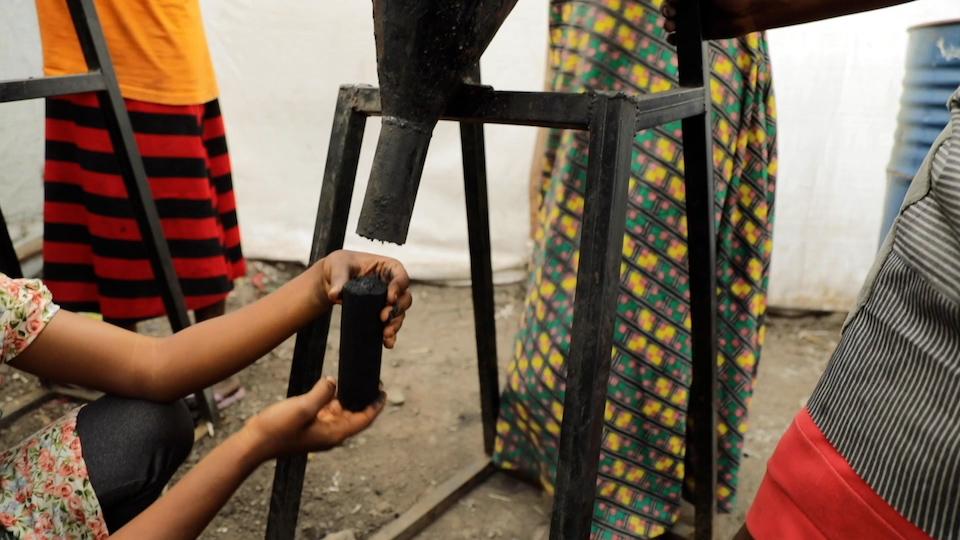
These days, Irakoze and her friends collect plant waste in and around the camp, then dry it and burn it with leftover charcoal and starch. The burnt mixture is put into the charcoal machine, then dried in the sun for at least three days.
We're going to help each other to be financially independent and help our families. — Béatrice Irakoze
The Green Girls use some of the eco-charcoal for cooking and sell the rest. "I'd like this project to continue until I buy my own machine to give work to other girls who don't yet have a job," says Irakoze. "We're going to help each other to be financially independent and help our families."
The project now reaches 100 teenage girls and young women. "They have learned to make green charcoal and have improved stoves, designed to cook efficiently and with less smoke," says Birhaheka. "We're making efforts to improve the management and impact of climate change here, and even to improve the overall environment in which the displaced families and surrounding communities live."
UNICEF programs protect vulnerable children and safeguard their futures. Your contribution can make a difference. Please donate.
